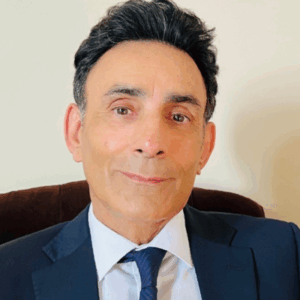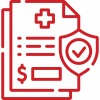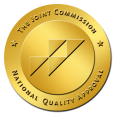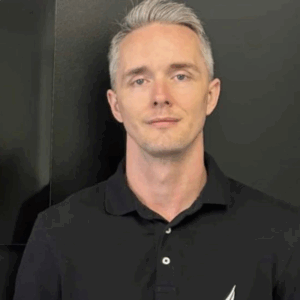

Living with persistent lows can feel like you’re carrying a weight no one else sees; when those lows are paired with racing thoughts and sleepless nights, the burden can become overwhelming.
Louisville Addiction Center’s anxiety and depression treatment offers evidence-based depression therapy Louisville, KY residents can trust, pairing compassionate clinicians with proven therapies to turn isolation into real, lasting relief inside a welcoming, supportive setting right here in the city.

Depression is more than a passing bout of the blues; it is a diagnosable mood disorder that changes the way a person thinks, feels, and functions from day to day.
Clinically known as major depressive disorder, it often shows up as persistent emptiness, loss of interest in once-enjoyed activities, fatigue that no amount of sleep fixes, and changes in appetite or weight.
Scientists trace its roots to a blend of genetics, brain-chemical imbalances, medical conditions, and stressful or traumatic life events.
Because symptoms can vary in intensity and duration, many people dismiss them until their job performance, relationships, or physical health begin to crumble.
Louisville Addiction Center’s anxiety and depression treatment team approaches depression first as a medical condition, never a personal failing, and designs an integrated plan that may include psychotherapy, medication management, and wellness coaching.
By meeting clients inside a dedicated depression facility staffed by licensed clinicians, the program gives them structure, safety, and hope for measurable recovery.

Bouts of low mood are normal, but certain warning signs indicate the need for professional depression therapy that Louisville, KY, residents can access. Watch for:
A person doesn’t need every symptom to meet diagnostic criteria; even a few that linger for two weeks warrant a professional evaluation. Early care improves recovery odds and lowers the risk of substance misuse and other health complications.
When depression hangs around, it doesn’t just dim your mood—it can chip away at every corner of life.
Anxiety and depression often travel together, each amplifying the other’s distress. Restless worry can drain energy and optimism, nudging a person toward the hopelessness that defines depression. In turn, the sluggishness and negative thinking tied to depression can make everyday tasks feel overwhelming, feeding anxious rumination.
Louisville Addiction Center’s anxiety and depression treatment team screens for both conditions at intake, then tailors therapy to address shared roots like trauma, thought distortions, and nervous-system overactivation.
Treating the pair simultaneously improves mood stability, reduces relapse rates, and helps clients reclaim routines that anxiety once derailed.
Here at Louisville Addiction Center, we screen all incoming patients for co-occurring disorders. This helps us to ensure that no dual diagnosis goes untreated or unchecked. In doing so, we ensure we can create the most comprehensive, effective, and appropriate treatment plan for each of our patient’s specific individual needs.
When it comes to treating depression, we have a plethora of resources at our disposal to help you or your loved one achieve your recovery goals.
Some of the treatments we use for depression treatment in Louisville, Kentucky include:
CBT is a form of therapy that involves the replacement of negative thought patterns with positive emotions and behaviors. This helps produce healthy outcomes, coping skills, and mental well-being. CBT is a non-invasive, evidence-based therapy.
Similar to CBT therapy, DBT focuses on emotional regulation in order to produce healthy and positive outcomes. This can help lead to healthy emotional regulation to benefit a person’s life. It can also help areas like self-esteem, interpersonal relationships and, day-to-day functionality.
Holistic therapies focus on treating the “whole person” while an individual is in treatment. This means focusing on positive outcomes for both the mind and body. Holistic therapy may include meditation, yoga, exercise, nutritional knowledge, and mental health therapies, for example.
EMDR therapy heals the overactive central nervous system. It can help those who have experienced trauma, suffer from PTSD, experience anxiety, or have recurring depression. EMDR therapy helps develop healthy coping mechanisms and positive habits.
Blending these modalities gives each person both the structured skills and the everyday lifestyle shifts needed to move from “just getting by” to genuinely feeling better.
According to the Association of American Medical Colleges (AAMC), nearly 1 in 5 adults experience a mental illness each year, yet less than half receive treatment for it.
Fortunately, we are here to offer supportive services and programs for anyone seeking healing and growth. Prospective patients can learn more about our comprehensive mental health programs designed to provide the tools and support needed for lasting wellness.
Louisville Addiction Center tailors treatment intensity to each client’s symptom severity and daily obligations, all within one trusted depression facility.

Partial Hospitalization Program (PHP). Often, in the first step after detox or inpatient care, PHP meets four to five days a week for about six hours each day. Clients participate in therapist-led process groups, individual CBT or DBT sessions, medication management, and skill practice labs. Close clinical monitoring catches mood dips early and allows rapid plan adjustments.

Intensive Outpatient Program (IOP). When symptoms stabilize but structured support is still essential, clients shift to three-hour therapy blocks three to five times weekly. Evening options let them return to work or school while refining coping skills learned in PHP.

Outpatient Program (OP). Once people can manage most triggers independently, they meet once or twice a week for focused relapse-prevention groups and check-ins with their primary therapist. Regular outcome tracking ensures graduates of OP have clear aftercare plans, community referrals, and rapid re-entry options if new stressors emerge.

Taking the first step can feel daunting, so Louisville Addiction Center keeps the process clear and quick for anxiety and depression treatment clients. A single phone call connects you with an admissions specialist who completes a brief screening to confirm that PHP, IOP, or OP fits your needs.
The team verifies commercial insurance or outlines transparent self-pay rates, then books an in-person bio-psycho-social assessment, often within 24 hours. During this appointment, a licensed clinician reviews medical history, current medications, and lifestyle factors to craft an individualized plan.
You’ll leave with your first week’s therapy schedule, a welcome packet, and instructions for accessing the center’s patient portal, ensuring you arrive on day one confident and prepared.

Louisville Addiction Center blends rigorous clinical standards with genuine neighborhood convenience. This accredited depression facility employs board-certified psychiatrists, licensed therapists, and nursing staff who meet with every client weekly to adjust medications and therapy goals.
Outcome metrics—mood scores, attendance, and functional milestones—drive each decision, ensuring care stays relevant.
Same-day assessments, coordinated primary-care referrals, and a compassionate, trauma-informed culture make comprehensive help accessible without leaving Louisville.




Get Family Support Now
We understand addiction affects the whole family. Our comprehensive family program helps rebuild trust and restore relationships.
Weekly Family Therapy Sessions
Educational Workshops
Support Groups
Communication Skills Training


American Psychological Association. (2019). Clinical practice guideline for the treatment of depression across three age cohorts. American Psychological Association. https://www.apa.org/depression-guideline/decision-aid-adults.pdf
American Psychological Association. (2019). Depression treatments. American Psychological Association. https://www.apa.org/depression-guideline/treatments/
American Psychological Association. (2019, September). APA offers new guidance for treating depression. Monitor on Psychology, 50(8). https://www.apa.org/monitor/2019/09/ce-corner-depression
McLeod, S. A. (2023, November 10). APA reference page formatting and example. Simply Psychology. https://www.simplypsychology.org/apa-reference-page.html
Mayo Clinic. (2023, December 14). Depression (major depressive disorder). Mayo Foundation for Medical Education and Research. https://www.mayoclinic.org/diseases-conditions/depression/diagnosis-treatment/drc-20356013
National Institute of Mental Health. (2023, July). Depression: Overview and treatment. U.S. Department of Health and Human Services, National Institutes of Health. https://www.nimh.nih.gov/health/topics/depression
Cuijpers, P., Karyotaki, E., Weitz, E., Andersson, G., Hollon, S. D., van Straten, A., & The COMET Group. (2016). The effects of psychotherapies for major depression in adults on remission, recovery, and improvement: A meta-analysis. Journal of Affective Disorders, 202, 511–521. https://doi.org/10.1016/j.jad.2016.05.048
Gartlehner, G., Gaynes, B. N., Amick, H. R., Asher, G., Morgan, L. C., Coker-Schwimmer, E., Forneris, C., Boland, E., Lux, L. J., Weber, R. P., Bann, C., Stilwell, K., & Lohr, K. N. (2016). Comparative benefits and harms of antidepressant, psychological, complementary, and exercise treatments for major depression: An evidence report for a clinical practice guideline. Annals of Internal Medicine, 164(5), 331–341. https://doi.org/10.7326/M15-1813









American Psychological Association. (2019). Clinical practice guideline for the treatment of depression across three age cohorts. American Psychological Association. https://www.apa.org/depression-guideline/decision-aid-adults.pdf
American Psychological Association. (2019). Depression treatments. American Psychological Association. https://www.apa.org/depression-guideline/treatments/
American Psychological Association. (2019, September). APA offers new guidance for treating depression. Monitor on Psychology, 50(8). https://www.apa.org/monitor/2019/09/ce-corner-depression
McLeod, S. A. (2023, November 10). APA reference page formatting and example. Simply Psychology. https://www.simplypsychology.org/apa-reference-page.html
Mayo Clinic. (2023, December 14). Depression (major depressive disorder). Mayo Foundation for Medical Education and Research. https://www.mayoclinic.org/diseases-conditions/depression/diagnosis-treatment/drc-20356013
National Institute of Mental Health. (2023, July). Depression: Overview and treatment. U.S. Department of Health and Human Services, National Institutes of Health. https://www.nimh.nih.gov/health/topics/depression
Cuijpers, P., Karyotaki, E., Weitz, E., Andersson, G., Hollon, S. D., van Straten, A., & The COMET Group. (2016). The effects of psychotherapies for major depression in adults on remission, recovery, and improvement: A meta-analysis. Journal of Affective Disorders, 202, 511–521. https://doi.org/10.1016/j.jad.2016.05.048
Gartlehner, G., Gaynes, B. N., Amick, H. R., Asher, G., Morgan, L. C., Coker-Schwimmer, E., Forneris, C., Boland, E., Lux, L. J., Weber, R. P., Bann, C., Stilwell, K., & Lohr, K. N. (2016). Comparative benefits and harms of antidepressant, psychological, complementary, and exercise treatments for major depression: An evidence report for a clinical practice guideline. Annals of Internal Medicine, 164(5), 331–341. https://doi.org/10.7326/M15-1813









Get Family Support Now
We understand addiction affects the whole family. Our comprehensive family program helps rebuild trust and restore relationships.
Weekly Family Therapy Sessions
Educational Workshops
Support Groups
Communication Skills Training


Hear directly from those who have walked the path to recovery. Our patients’ stories highlight the compassionate care, effective programs, and life-changing support they’ve experienced. Let their journeys inspire you as you take your first steps toward healing.
Louisville Addiction Center is helping people in Kentucky overcome addiction and mental health challenges.